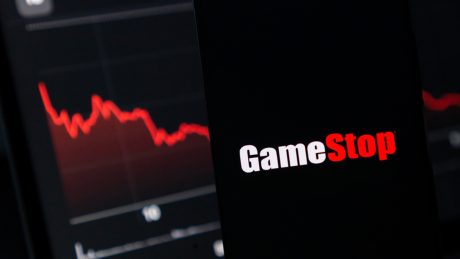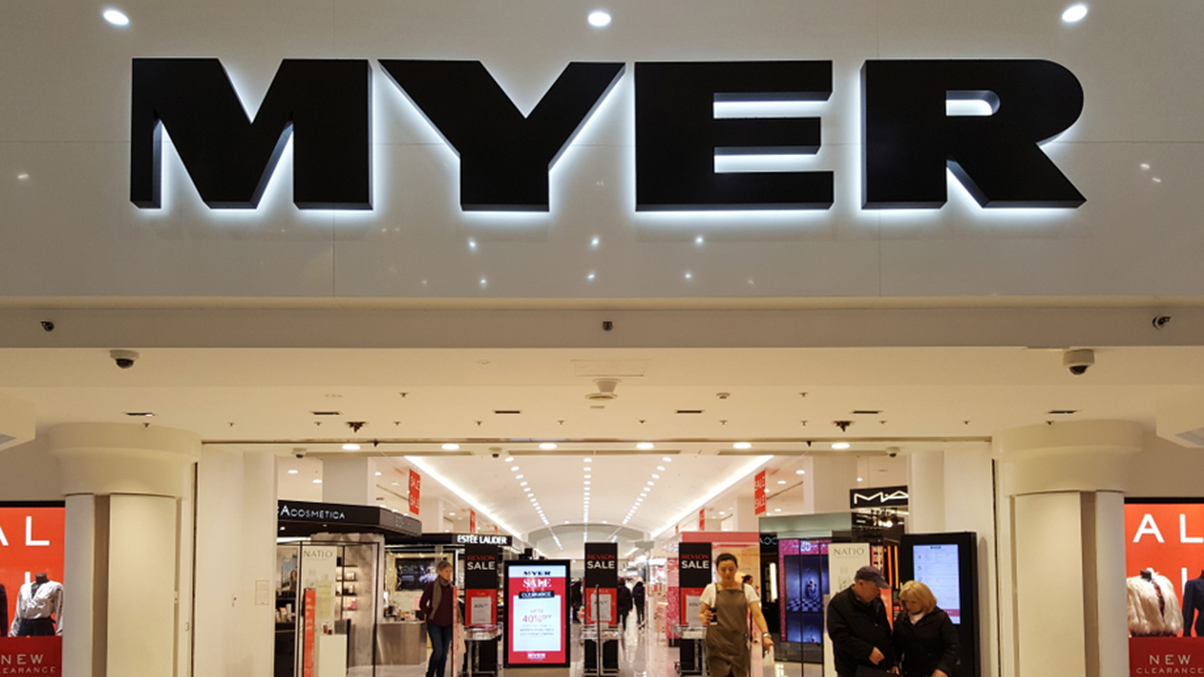At the beginning of 2021, the stock market experienced a trading frenzy that saw unexpected fluctuations and surges in several stocks, most notably the US companies GameStop and AMC. Beata Moskova summarises potential litigation implications for the UK financial markets arising from the GameStop ‘short squeeze’ and consequent market activity.
In January 2021, GameStop’s stock price rose by more than 1,000% in less than a month in what has been called a ‘short squeeze’ by retail investors who targeted hedge funds and asset managers with large short positions on this stock. The short squeeze was initially and primarily triggered by users of social news website Reddit who believed GameStop was significantly undervalued, with its shares being heavily shorted by hedge funds and asset managers. Read more about ‘meme stocks’ and the implications of retail trading.
At the end of January, online stock trading platform Robinhood imposed restrictions on the trading of GameStock and other stocks, limiting users by preventing them from buying these stocks while hedge funds and other investors were able to continue to trade as normal using other trading platforms. These restrictions have resulted in several class action lawsuits being brought in the US against Robinhood.
In October 2021, a Florida federal judge appointed a lead plaintiff in the US to lead a consolidated multidistrict litigation alleging that Robinhood and other defendants, including hedge funds such as Citadel and other market players, caused more than $10bn in market capitalisation losses as a result of these trading restrictions. The suit combines more than 55 lawsuits against Robinhood and other defendants and alleges they conspired to restrain trade and entered into an anticompetitive scheme to fix, raise, stabilise, maintain or suppress the price of the relevant securities.
On 17 November 2021, the judge dismissed the antitrust claim saying that the proposed class action fails to allege more than the “bare assertion” of a conspiracy to restrict purchases of certain stocks during the January volatility. The judge gave the plaintiffs until 20 December 2021 to file a final amended complaint.
What does this mean for the UK?
In the UK, Freetrade, a UK-based stock trading app, suspended the buying of US stocks at the end of January following a decision by its foreign exchange provider and bank to limit the volume of trades. This resulted in numerous disgruntled retail investors losing out on trading opportunities (and potentially having suffered losses as a result).
The GameStop short squeeze has raised concerns with several regulators, including the US Securities and Exchange Commission (“SEC”) and the UK Financial Conduct Authority (“FCA”), which had been monitoring the trading activity closely and warned traders on potential market abuse. In the UK, the FCA issued a warning on 29 January 2021 that “firms and individuals should ensure they are familiar with, and abiding by, all regulations, including the market abuse and short-selling regimes in the jurisdiction they are trading in”. In the UK, market abuse and market manipulation behaviours and offences are set out in the Market Abuse Regulation (Regulation 596/2014).
Potential litigation implications
Several class action lawsuits have already been filed in the US against Robinhood, predominantly by its customers. The first class action filed in the Southern District of New York states that limitations on trading implemented amid the volatility had deprived retail investors of the ability to invest in the open market. It alleges breaches of contract and breach of the implied duty of good faith and fair dealing, negligence and breach of fiduciary duty.
Similar actions may be available to customers of UK-based trading platforms such as Freetrade seeking damages as compensation for any loss of opportunity and/or loss of profit due to restrictions on trading imposed by Freetrade or other UK-based platforms.
Potential causes of action
Breach of contract
The most obvious cause of action in a potential claim against trading platforms such as Freetrade would be breach of contract. The contract between the trading platform and its customers would ordinarily be set out in standard terms and conditions. These will include terms pursuant to which the trading platform agrees to provide its customers with the ability to buy and sell certain types of securities. This clause would allegedly be breached if the trading platform suspends its services as it did at the start of 2021, causing financial losses to the customers as a result.
In English law, the purpose of an award of damages for breach of contract is to compensate the injured party for loss (rather than punish the wrongdoer). The general rule is that damages should place the claimant in the same position as if the contract had been performed. In the GameStop scenario, the financial losses customers would be able to claim are for profits they would have earned while trading the relevant securities suspended in breach of contract. However, the contracts in question may include terms allowing for the suspension of trading in certain circumstances. It would then be a question of whether such circumstances applied when Freetrade suspended trading.
Negligence
A claim for negligence is a further avenue customers of trading platforms such as Freetrade could pursue. A trading platform will generally owe its customers a duty of reasonable care and skill in conducting and facilitating transactions on behalf of its customers. It may be arguable that the duty has been breached, causing the loss of profits.
Breach of duty of good faith and fair dealing
The US action includes an allegation of breach of duty of good faith and fair dealing. There is no such recognised legal duty in English law. Making good faith a general organising principle of English law would risk undermining the express terms agreed between the parties to a contract. The absence of a legal duty of good faith has traditionally been one of the attractions of choosing English law to regulate contractual relationships. However, such contractual obligations coexist with any tortious obligations under which the duty to exercise reasonable care and skill may arise.
An implied duty based on good faith might arise where the contract would lack commercial or practical coherence without it. You would not expect this to be the case in contracts between electronic trading platforms and their users constituted by generally lengthy and well-detailed terms and conditions.
Nevertheless, English courts do take into account broad concepts of fair dealing in their response to questions of construction and implication of terms. As stated by Lord Steyn in Contract Law: Fulfilling the Reasonable Expectations of Honest Men (1997): “A thread runs through our contract law that effect must be given to the reasonable expectations of honest men.” Therefore, almost all contracts would reasonably be understood as requiring honesty in their performance, reflecting the common assumption by the parties to this effect.
Breach of fiduciary duty
Users of electronic trading platforms such as Freetrade might argue that the trading platforms are their agents in law for trading execution purposes and, as a result, owe them fiduciary duties, including a duty of no conflict, a duty not to profit from the use of their position, and a duty of disclosure and confidentiality, among others. Depending on the factual basis of a potential claim, it may be possible to argue that one or more of these duties has been breached by the restrictions to trading imposed by trading platforms.
However, it is common for platforms such as Freetrade to include a “no partnership or agency” clause in their terms and conditions to prevent arguments that an agency relationship exists. As in other areas of English law, however, to establish whether an agency has been created, the courts would consider the reality of the relationship between the parties and not the label put on it. Therefore, such a clause would not be conclusive of the relationship between the parties if they have subsequently acted in a way consistent with a principal/agent relationship. In the case of trading platforms such as Freetrade, it may be difficult to argue there is a principal/agent relationship as such platforms appear to be acting as mere intermediaries facilitating the financial transactions that its customers would like to complete on the stock market.
Regardless of whether an agency relationship may be established, it might still be difficult to establish a breach of fiduciary duty. Even if the trading platforms are considered their users’ agents, the limits of this agency relationship would be defined by the terms and conditions forming the contract with each user. It would be usual for such terms and conditions to offer great flexibility to the trading platforms, such as allowing them to change or suspend their services from time to time and allowing them to add or remove certain securities from their platform.
Likelihood of success
Exclusion and limitation of liability in terms and conditions
A key consideration in assessing the likelihood of success in a potential action against a trading platform is whether their terms and conditions exclude or limit liability for their actions when restricting trading.
As with Freetrade’s terms and conditions, it would be usual to see a trading platform excluding their liability for losses arising out of changes to or suspension of their services due to a fault of any commercial counterparties they use or due to events outside their reasonable control. In Freetrade’s case, for example, the reason provided by them for suspending the buying of US stocks was a decision by their foreign exchange provider and bank to limit the volume of trades. This would likely be considered an event outside their reasonable control for which they have excluded their liability.
Even if a firm’s liability were not excluded entirely in certain circumstances, it would be common to see a monetary cap to their liability of an amount not sufficient to cover large losses of opportunity or profit.
While trading platforms might seek to exclude or limit their liability as much as possible to shield themselves from potential lawsuits, there are certain restrictions to unfair terms in consumer contracts imposed by the Consumer Rights Act 2015 (applicable to any contracts made on/after 1 October 2015). These restrictions might make a contractual term unenforceable if it is unfair to the consumer.
In relation to clauses limiting or excluding liability in financial services contracts, the question is whether the terms limiting or excluding liability are clear and appropriately allocate the risk between the parties. A term might not be allocating risk appropriately if a contract excludes the firm’s liability where it would be more appropriate for it and not the consumer to be liable, for example, by imposing responsibility for loss on the consumer except where the loss is due to their negligence or where the firm is negligent or provides poor service or inadequate performance.
In addition, claims arising from fraud cannot typically be excluded by contractual terms. However, in light of the pleading standards in the UK, one cannot usually plead fraud in the absence of clear evidence. Therefore, with no publicly available evidence suggesting fraud on the part of platforms such as Freetrade, it is unlikely that a claim based on fraud can be made (and any lesser claims are likely to be prevented by contractual terms).
Practical considerations
Even if an action can proceed to court on a substantive analysis, certain elements of it might be difficult to establish, such as proving the specific losses retail investors have suffered as a result of the restricted trading practices by platforms such as Freetrade.
Large institutional investors often keep a record of their planned entry/exit points for certain positions and have a track record of their trading strategy and profitability. In contrast, individual investors might find it difficult to prove when they would have bought or sold a certain security and, as a result, incurred losses from not being able to do so.
Wider commentary
Beyond any regulatory and litigation implications, the GameStop short squeeze raises a wider debate about the steps necessary to preserve an orderly market on the one hand while on the other hand ensuring there is sufficient opportunity to address any inefficiencies within the market through trading. It is accepted (although occasionally controversial) market practice that asset managers and hedge funds can place large short positions in a given company that has a downward effect on price due to the signal it sends to the market. It is difficult to see how a concerted action by retail investors to impact price is any different, subject to them falling foul of the Market Abuse Regulation or similar. However, regulators will be concerned that while institutional investors can carefully gauge their risks, individual retail investors do not expose themselves to rapid and severe losses.
Stewarts Litigate
Stewarts has launched a ground-breaking after the event (ATE) insurance facility with Arthur J. Gallagher Insurance Brokers Limited. ‘Stewarts Litigate‘ is designed to work alongside our alternative funding agreements. The facility provides our commercial disputes clients with rapid access to comprehensive ATE insurance at pre-agreed market leading rates. The facility can provide coverage of up to £4 million in three business days and up to £18 million within ten business days.
Find out more about Stewarts Litigate here.
This communication has been authorised by Arthur J Gallagher Insurance Brokers Limited for the purpose of s21 of the Financial Services and Markets Act 2000
You can find further information regarding our expertise, experience and team on our Commercial Litigation pages.
If you require assistance from our team, please contact us.
Subscribe – In order to receive our news straight to your inbox, subscribe here. Our newsletters are sent no more than once a month.





